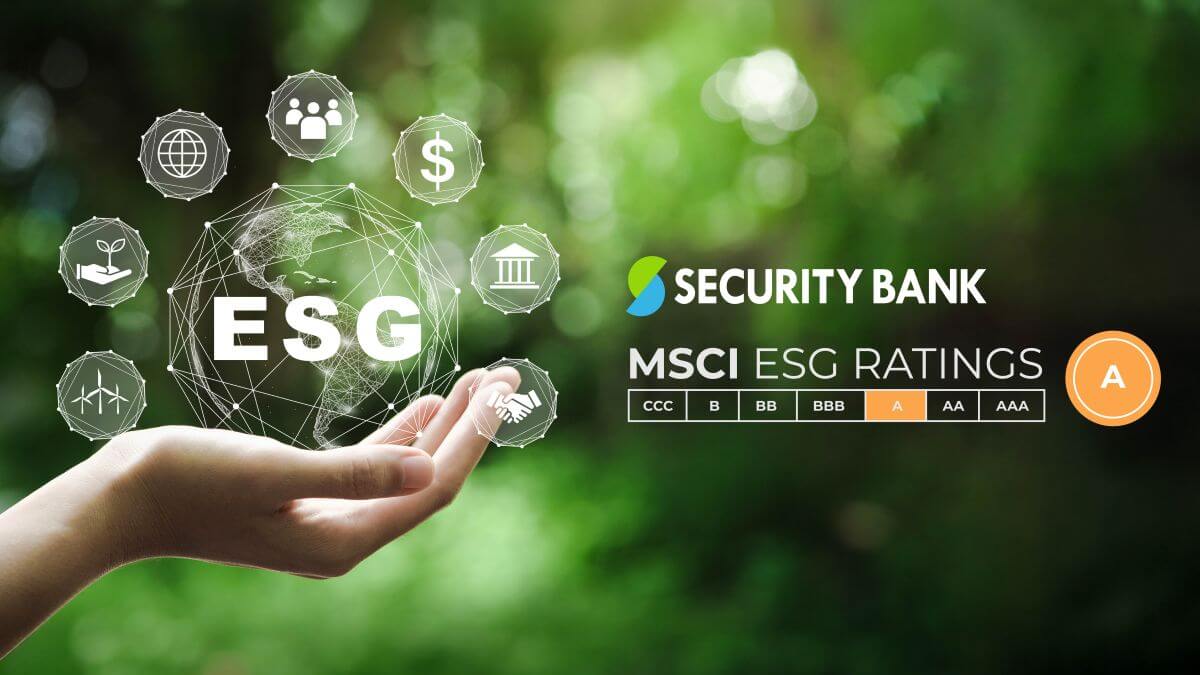

Among these standards, the MSCI ESG Rating is one of the most widely recognized globally. It is used by asset managers and analysts to assess companies’ resilience to issues such as climate change, labor practices, and corporate ethics.
What is an MSCI ESG Rating?
MSCI ESG Ratings measure a company’s resilience to long-term ESG risks. Companies are scored on a scale ranging from AAA (leader) to CCC (laggard), relative to industry peers. Ratings are based on both a company’s exposure to ESG risks and its ability to manage those risks effectively.
MSCI assesses multiple factors, including:
A higher rating signals to investors that a company is well-positioned to manage ESG challenges and seize opportunities in a changing business environment.
Why Security Bank’s ‘A’ rating stands out
Recently, MSCI upgraded Security Bank to an ‘A’ rating—making it the only Philippine bank to hold this score today. This places the Bank on par with leading financial institutions in the Asia-Pacific region for ESG risk management.
MSCI cited the following as key drivers of the upgrade:
“Being the only Philippine bank with an MSCI ESG ‘A’ rating is a clear signal that our governance, risk management, and sustainability practices are helping us realize our vision to be best-in-class in sustainable banking,” said Sanjiv Vohra, president and CEO of Security Bank.
“An MSCI ‘A’ rating is not just a badge—it’s proof that we are managing ESG risks as effectively as the best in our industry.”
Why it matters for customers and investors
For customers, an MSCI ‘A’ rating means the bank is building systems and safeguards that protect their interests and the environment over the long term.
For investors, it signals resilience and strategic foresight in navigating regulatory, environmental, and societal shifts.
The MSCI upgrade is one of several milestones in the bank’s sustainability agenda this year. In May, Security Bank became the first Philippine bank to join the Alliance for Green Commercial Banks—a global initiative spearheaded by the International Finance Corp. (IFC) and the Hong Kong Monetary Authority to accelerate sustainable banking practices.
Additionally, the bank partnered with IFC to expand its green financing portfolio and strengthen its institutional sustainability framework, enabling greater support for renewable energy, energy efficiency, and climate-resilient projects. —Ed: Corrie S. Narisma